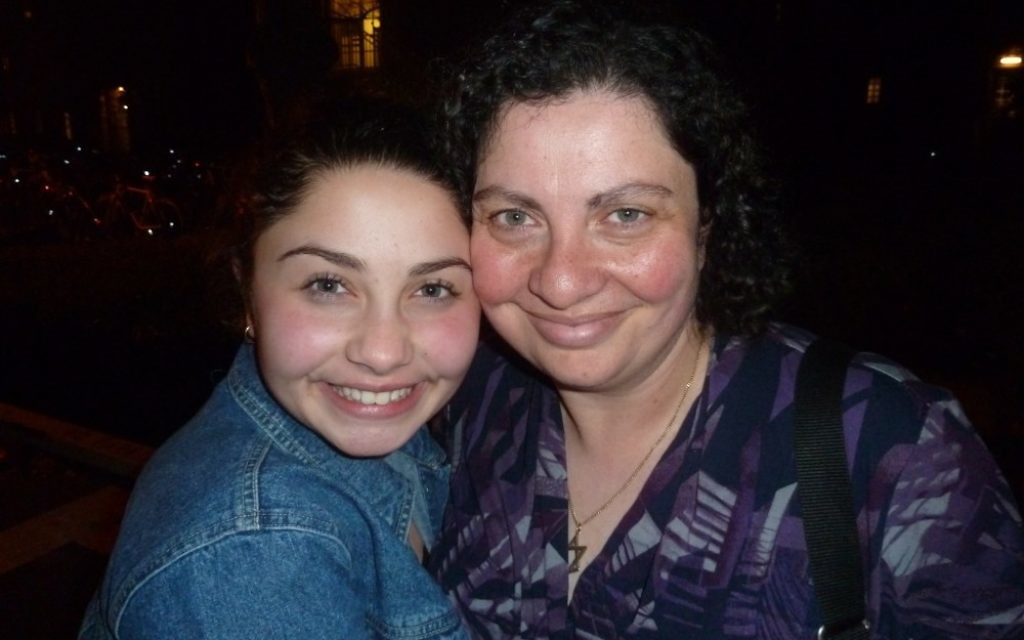Safe Travel Depends on Kindness of Strangers
There's no place like home, but random conversations can bring comfort.

My grandmother would always kiss the mezuzah before departing on a trip and insist we did too. On normal days and even holidays, prayers and talismans were forsaken — my grandmother was not on good terms with G-d — but when it came to travel, she was taking no risks.
My grandmother left home as a young woman because Zionism beckoned. Later she could not persuade her mother to leave as Nazism engulfed Vienna. But she did arrange a rescue for her younger sister that involved walking across borders.

I never asked about the nature of her prayers when she kissed the mezuzah, but I understood her need.
Get The AJT Newsletter by email and never miss our top stories Free Sign Up
When my children were young teenagers, they flew on their own to meet my parents in Vienna to dedicate a memorial to my great-grandmother. They were rightfully nervous about the travel plan, which included transfers in London and Frankfurt.
What would they do if something went wrong at Heathrow? Or Frankfurt? Not to worry, I assured them. I would simply call a rabbi and have someone come to their rescue.
I knew it to be true. Two days after they safely arrived, I fielded a call from a rabbinic colleague in Buenos Aires. A congregant had taken ill while visiting San Francisco; would I be willing to check in at the hospital? Of course, and I did.
I don’t worry about the big stuff when I travel; if need be, I’ll call on my networks.
But, still, the leaving home makes me uneasy. At home I have my mezuzot, real and metaphoric, to keep me connected. The familiarity of my bed, my supermarket, my friends, my roads grounds me. The known keeps at bay the awareness that everything in this world is ultimately tenuous.
I counter my discomfort with a bit of help from the Jewish theologian Martin Buber. He wrote of the sanctity that comes when we allow ourselves to connect with others.
When I travel, I go out of my way to talk with others. Engaging with strangers turns them into people with whom I find kinship and reminds me that I am not alone. It is often a source of deep spiritual and sometimes even practical comfort.
Right after the tragedy of Sandy Hook, I found myself delayed in Dallas. I lived in San Francisco at the time, and no one I knew owned guns. But my “neighbors” in Dallas did.
Despite that difference, we found much common ground — around our concern for our children’s safety, background checks and worries about what violent video games do to children. This was a conversation that not only passed the time and broke our isolation, but also lifted us toward a bigger vision of our shared humanity.
This summer, I took a one-day trip to New York to help a close friend bury her mother. I left before dawn. After a meaningful but full day, I arrived back at LaGuardia to find that my flight would be delayed several hours. At first, I was content, but as the hours wore on, so did my agitation.
And I said so out loud. The only person to take notice was a heavy-set young man with intentionally saggy pants, a backward cap and large earphones. He responded by saying that someone in authority had assured him we would get out that night.
Not yet 20, this immigrant from Honduras needed to make it to Atlanta that night to be present when his father went for his final citizenship meeting the next morning. As our connection grew, so did my ability to be present and weather the inconvenience.
Arriving at Hartsfield-Jackson in the middle of the night, I pulled up the photo I had taken of my parking spot. Sadly, in the morning rush, I had blurred the image and now had no way to find where I had parked. I flagged down a safety patrol with a lean African youth at the wheel. Sheepishly, I explained my plight. He easily identified my blur and returned me to my car. Traveling had not been without its challenges, but, thanks to Mohammed, I was finally and safely on my way home.




comments